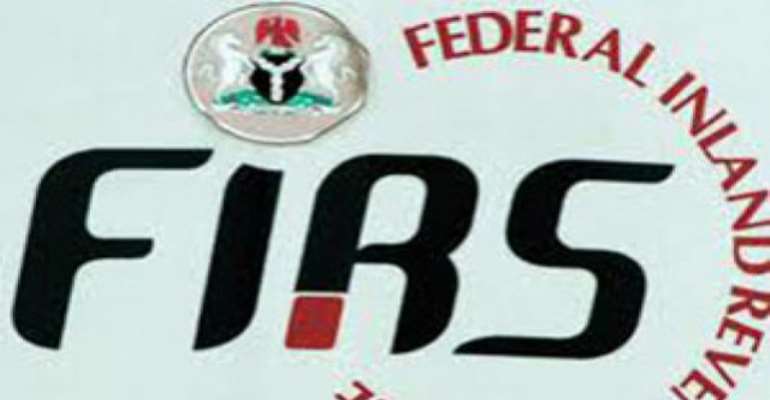Prosecuting Nigeria's tax evaders – Punch

AS Nigeria's oil income dwindles, the signal that there is a high rate of tax evasion in the country calls for fresh pragmatism in taming the scourge. Modern governments are sustained by taxes, which, when managed efficiently, spur inclusive growth; but it is alarming that only 35 per cent of taxpayers in Nigeria are compliant.
Quoting a McKinsey & Company (a global tax auditor) report, Finance Minister, Ngozi Okonjo-Iweala, said, '…65 per cent of registered taxpayers have not filed their tax returns for the past five years; 75 per cent of SMEs are currently not in the tax system…; 30 per cent of companies operating under the pioneer status incentives abuse their tax exempt status….' For taxpayers, there is nothing more demoralising than seeing individuals and organisations held in high esteem swindle the system. Firms and people that do not pay their fair share of tax unjustly push the burden on to others.
The situation is exacerbated by the newly-rebased Gross Domestic Product, which now stands at $510 billion (the biggest in Africa). The rebasing has seen Nigeria's tax-to-GDP ratio crash from 20 per cent to 12 per cent. Comparatively, South Africa has 27 per cent tax to GDP ratio, while Ghana logs 15 per cent. Okonjo-Iweala admits that anything below 15 per cent is suicidal. '…otherwise, the economy will be threatened,' she added.
Tax avoidance and tax evasion threaten government revenues. And they thrive in a climate of secrecy, inadequate legal frameworks, lax regulation, poor enforcement, and weak inter-agency co-operation. Although the Federal Inland Revenue Service has continued to improve year-on-year in tax revenues - the FIRS raked in N455 billion in 2000 but N5.007 trillion in 2012 with a projection of N6.060 trillion for 2014 - the painful fact is that the overwhelming majority of individuals and corporate bodies are still non-compliant. Even among those paying, compliance is half-hearted. Aliko Dangote, President of the Dangote Group, alleged at a recent FIRS workshop that the companies who were supposed to be paying 85 per cent of the Petroleum Profit Tax recovered their payments through the dubious means 'of raising their project cost.'
It is estimated that developing countries, including Nigeria, lose more than $100 billion a year through tax avoidance and tax evasion. Last year, Financial Derivatives, a financial services consultancy on tax evasion, said up to N85.2 billion was lost through tax evasion in the automobile industry alone in four years.
It is true that nobody likes paying tax. Experts agree that corruption, obsolete tax laws, weak and incapacitated tax administrative machinery, manual tax system and unwieldy operational procedures undermine citizens' confidence in their governments' ability to get qualified taxpayers to pay their taxes and may deprive governments of revenues needed for sustainable development. But in civilised countries, tax evasion is a crime handled with all seriousness. In these societies, heavy fines and jail terms rein in offenders without regard to popularity and public standing.
The government has to find a novel way round this manipulation. It should stop crying wolf, but take the necessary action that will force - or encourage - defaulters to toe the line. The other side of the coin is that there are many companies and individuals that are not in the tax net, thereby overburdening those in the tax register. As Dangote suggested, the government and the FIRS should launch the bold step of 'naming and shaming' the tax defaulters, while 'appreciating the companies and individuals who faithfully fulfil their tax payment obligations.' Also, those who are compliant will want to know the tax dodgers and the action to be taken against them by the state. Do the National Assembly and state Houses of Assembly demand the tax history of ministers, commissioners and other political appointees in screening them? Are the firms doing business with our various governments made to prove their tax compliance in a transparent manner?
Okonjo-Iweala must do more biting than barking. In the face of decrepit infrastructure, failing health and education indices, which are rated among the worst in the world by notable global bodies like the World Bank and the Economist Intelligence Unit, the country needs more revenue from taxation. The government's duty is to deploy ingenious, futuristic, yet, friendly approaches to increasing tax revenues.
However, it is important that corruption is firmly tackled. Many citizens are apathetic to paying tax because they witness the irresponsibly lavish lifestyle of public officials. Those manning the tax posts have to shun the life of ostentation common among our public officials, while those paying must see the result of their contributions in the way taxes are being transparently utilised.
The oil-led development that is overwhelmingly dependent on revenues gleaned from the export of petroleum must be reversed. Oil dependence skews the institutional development of the state because oil rents weaken agencies, discourage fiscal innovation and deepen corruption.
The Federal Government should demonstrate a glaring transparency in public finance and a strong resolve to tackle tax crimes, money laundering and other financial crimes. Going forward, the FIRS has to make its intentions known by taming tax evaders, no matter how highly placed they might be. The authorities must realise that oil revenues will not last forever, and the earlier we started building capacity ahead of the rainy days the better.
